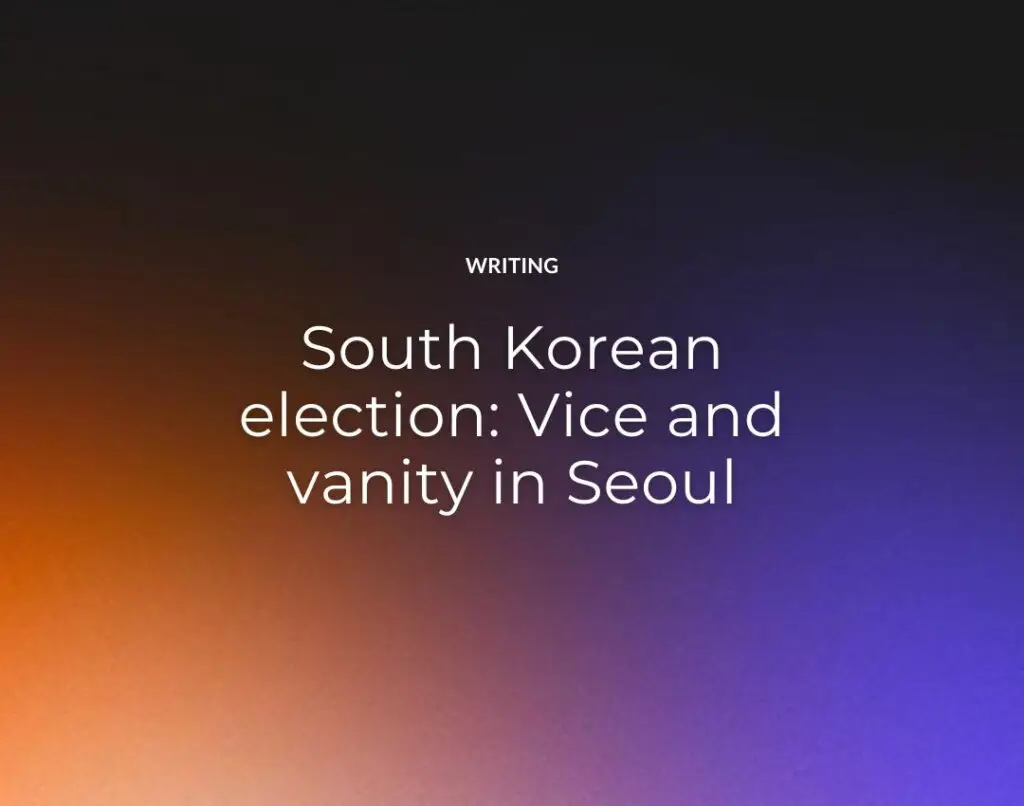By Geoffrey Cain
PRI’s The World
Dec 18, 2012
SEOUL, South Korea — South Koreans assumed that Lee Kun-hee was the equivalent of royalty, an untouchable oligarch at the helm of one of the world’s largest companies, the Samsung Group.
So the shock came right after South Korea’s pro-business president, Lee Myung-bak (no relation to the Samsung chairman), took office four years ago. Prosecutors raided the home of Samsung’s Lee, as well as Samsung headquarters. In July 2008, he was convicted of financial wrongdoing and tax evasion.
To some, it appeared that South Korea’s young democracy, which was set up in 1987, was maturing: The government finally had the spine to wrest away power from a tiny clique of business executives notorious for flouting the law and getting away with it. Lee was sentenced to three years of a suspended jail sentence.
But it turned out that power in South Korea is not fleeting. A year later, Lee Myung-bak pardoned the Samsung scion. He claimed that Lee Kun-hee could influence South Korea’s now-successful bid for the 2018 Winter Olympics.
Critics replied that power, as usual, had trumped justice.
Seoul vice
The South Korean economy is dominated by a handful of chaebol, the politically connected business empires like Samsung and Hyundai. They’re often prone to scandal in this raucous democracy, and they’ve become an easy target in South Korea’s election Wednesday while the North Korea issue sits on the sidelines.
Conservative candidate Park Geun-hye and liberal candidate Moon Jae-in are both promising to curb chaebol influence, halt unfair competition, and strengthen small businesses through series of reforms. Rather than focus on the North Korea problem, this election’s buzzword is “economic democratization.”
It’s a purposefully vague phrase that appeals to many.
“This term is a catch-all to win broad support from people who feel they are victims of chaebol bosses, chaebol domination, cozy collusion between business and politicians, corrupt bankers, elitism, lack of job opportunities, obsession with degrees from a handful of top universities and anything else you can be a victim of,” said Mike Breen, author of “The Koreans: Who They Are, What They Want, Where Their Future Lies.”
But with the chaebol shipping some 70 percent of South Korean exports, any clean-up could be unrealistic. “I doubt [Park] will be able to do much about the chaebol,” Breen added.
Prosecutors have frequently targeted and charged their executives with embezzlement, tax evasion, and in the case of the Hanhwa Group, a bizarre incident when its chairman struck a man with a steel pipe.
Keep it in the family
Of all the tools of chaebol power, the candidates have especially attacked the system of “circular shareholdings,” a tactic that allows the ruling titans to keep control of their publicly listed companies.
Here’s how it works. The Samsung Group has 15 cross-investments among its affiliates. Its unlisted theme park controlled by the ruling family, Samsung Everland, acts as the entire group’s de facto holdings company.
The resort has holdings in Samsung Life Insurance, which owns a stake in Samsung Electronics, which has a stake in Samsung Card, which owns holdings back at the starting point in Everland.
The arrangement allows the ruling Lee family to keep some control over the group despite its public listing. While the Lees are listed as holding 4.7 percent of Samsung Electronics, the clique possibly controls 17.6 percent of voting rights through other Samsung Group subsidiaries, reveals an August analysis by Citigroup.
Critics say the chaebol system is outdated, and that the groups are too secretive and closed off to the public. Michael Kim, a former senior manager in Samsung’s semiconductor business from 2008 to 2010, told GlobalPost that he was brought in as a Korean American to improve their business practices, but ended up being pushed out.
Park, in the conservative tradition, is friendlier to the conglomerates but has also promised to help small and medium enterprises (SMEs) that have been struggling since the recession. In mid-November, she announced a 35-point reform that included stronger fair-trade regulations and job creation.
But critics suggested she dulled her earlier suggestions for reforming the chaebol, which included greater restrictions on circular shareholdings. Park has argued that reform would carry a heavy price tag.
Members of her Saenuri Party have also proposed outlawing presidential pardons for imprisoned bosses, although the pitch appears to have lost steam in recent months.
The irony is that Park’s father, the dictator Park Chung-hee, built up the chaebol to industrialize the country in the 1960s and 1970s. He first embarked on a harsh campaign of harassment, forcing the groups to clean up corruption and work in line with the government’s economic goals.
Moon, meanwhile, says he’ll give the chaebol three years to get rid of the existing cross-shareholdings. He’ll also force them to stop the transfer of funds between affiliates, a loophole that allows the groups to get capital without revealing their source.
Chaebol conundrum
The contenders are running just after public sentiment has been directed at President Lee over his ties to big business, a factor that has caused his approval ratings to hover around 30 percent since last summer.
Lee, nicknamed the “Bulldozer,” is the hard-headed former Hyundai Construction boss and Seoul mayor who pledged to push annual GDP growth up to 7 percent per year — a plan that involved harnessing even stronger alliances between politicians and businesspeople.
But the tetchy leader has entered his lame duck phase, amid all sorts of fiery allegations regarding his well-heeled connections.
During his tenure, the government gave pardons to the Samsung and Hyundai chairmen after they were convicted of embezzlement.
In July, another corruption scandal exploded when the president’s 76-year-old brother was arrested for allegedly receiving $500,000 from two struggling banks that were vying for political influence. Then, in October, prosecutors summoned Lee’s son, Lee Si-hyung, for questioning over a defunct deal to buy land for Lee’s retirement home, which would allow him to pay less than the market value.
That’s not a fun way to end a presidency. And, of course, Lee did have some successes, like boosting South Korea’s global image as a so-called “middle power.” His administration was particularly proud, for instance, of bringing the G20 summit to Seoul in 2010.
But the disgraces have overshadowed his successes. Park and Moon are placing themselves in contrast to President Lee as much as possible, hoping that his image won’t linger.
The article was originally published in PRI’s The World
See Also:






